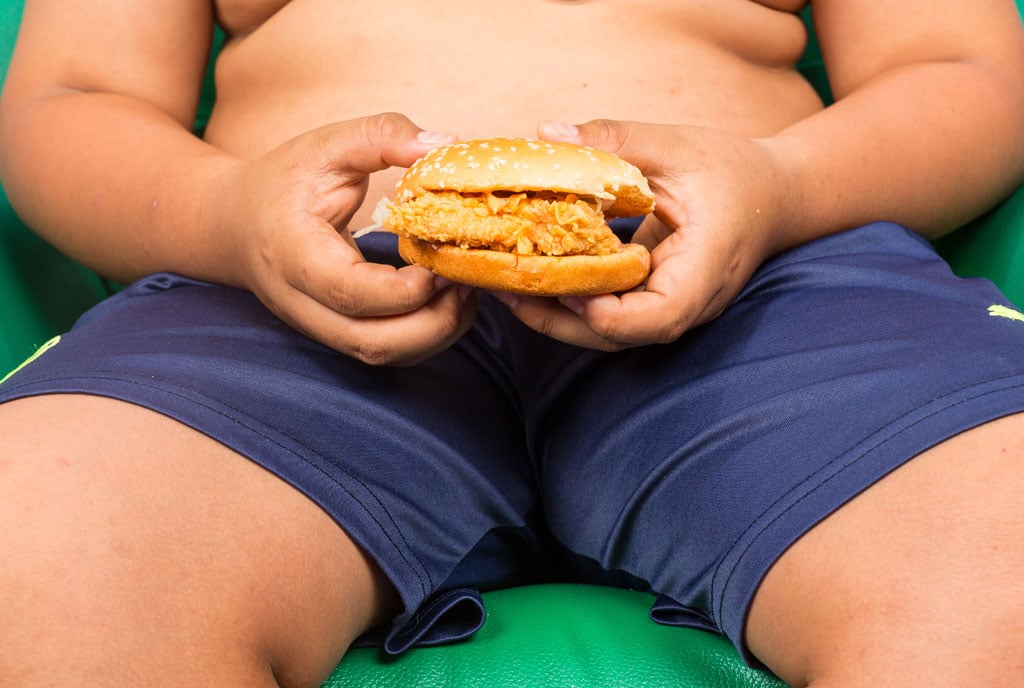
The diet of children is crucial in fighting obesity. PHOTO/SHUTTERSTOCK
Beyonce is 10 years old. She weighs 65 kilogrammes. Her mother Zahara is worried: “The girl does not eat anything else but KFC. I have tried to convince her to eat local foods but she is adamant. I do not know what to do”, she says with disappointment on her face.
Obesity refers to excess fat. For children, the definition of a healthy Body Mass Index (BMI) depends on their age and sex.
How do I know if my child has a healthy BMI?
When your child sees their doctor or nurse for regular check-ups, this will include checking their height and weight. The doctor or nurse uses these measurements to calculate their BMI.
Your child’s BMI is then compared with a “growth chart.” Growth charts have information about the typical heights, weights, and BMIs of children of the same age and sex. Doctors use these charts to know if a child is underweight, a healthy weight, overweight, or has obesity.
Does my child’s weight affect their health?
Yes. It’s important to have a healthy weight, because children who are very overweight can have:
●Asthma – This is a lung condition that can make it hard to breathe.
●High blood pressure
●Sleep apnea – This is a condition that makes people stop breathing for short periods during sleep.
●Knee or back pain
●Liver problems
Having a healthy weight as a child also makes a person more likely to have a healthy weight later in life. Being overweight as a teen or adult can lead to medical problems such as high blood pressure, diabetes, heart attacks, and some types of cancer.
What causes children to be overweight?
Children can be overweight for different reasons. Things that make this more likely include:
●Eating a lot of snacks, fast food, foods with sugar, or large portions.
●Not getting enough physical activity.
●Drinking a lot of sugary drinks, like soda and juice.
●Spending a lot of time watching TV or playing video games.
●Not getting enough sleep.
There are many reasons these things can happen. For example, food that is affordable might not always be healthy. Depending on things like work, school, and where you live, it can be hard for a child to exercise or get enough sleep.
Some children simply gain weight more easily than other children. This means that they have to work extra hard to have a healthy weight.
Some medicines and medical conditions can also make children gain weight more easily.
Will my child need tests if they are overweight/ obese?
Maybe. The doctor will talk with you and your child, and do an exam. They might do blood tests to check for:
●Health problems that can happen when children are overweight
●A condition that could be causing your child to gain weight easily.
How can I help my child get to a healthy weight?
To help your child have a healthy weight, you need to help them eat healthy foods and be more active. Making these lifestyle changes can be hard, especially at first.
Some goals you can work toward to help your child be healthier:
●Have your child eat five servings of fruits or vegetables each day. Fresh or cooked fruits and vegetables count toward the goal, but fruit juice does not. A serving is usually one whole fruit (such as an apple or banana) or a half cup of vegetables. If you do not have fresh fruits and vegetables available, you can use frozen or canned ones instead.
If your child does not like vegetables or fruit, start slowly. Eat these foods yourself to set a good example, and have your child keep trying them.
●Limit your child’s “screen time.” Screen time includes watching TV, playing video games, or using a computer or phone for things other than schoolwork. Experts recommend that young children (ages two to five) have no more than one hour a day of screen time. Older children should also limit screen time. Spending too much time watching TV or using electronics raises a person’s risk of being overweight.
●Have your child be physically active for one hour or more each day. This can include organised activities such as sports or dance. But children can also get exercise just through play.
●Do not give your child any sugary drinks. Sugary drinks include soda, sports drinks, and all juices.
You and your child might not be able to meet all of these goals at first, but that i okay. Choose one or two goals to try first. Later, you can try to meet all of these goals.
Is there anything else I can do to help my child?
Yes, you can. Dr Mary G. Kuteesa, a paediatrician at Makerere University Lung Institute, advises parents to use the following strategies:
●Try to avoid bringing a lot of unhealthy food into your home. If you have unhealthy food in the home, your child is likely to eat it even if you tell them not to.
Unhealthy foods include chips, cookies, pastries, and many other snack foods. It is okay for your child to eat these foods once in a while, but not too often.
●Make sure that your child gets enough sleep. Some studies suggest that children who do not sleep enough are more likely to gain too much weight. In general, children three to five years old should get 10 to 13 hours of sleep (including naps). Older children should get nine to 12 hours of sleep each night, and teens should get eight to 10 hours.
To encourage sleep, it helps to have a set bedtime and wake-up time every day, even non-school days. It is also a good idea to have a quiet before-bed routine. Try not to let your child watch TV or play video games right before bedtime.
●Involve the whole family. Have everyone in your home eat healthier and be more active, even those who have a healthy weight. Try to do physical activities together. This can be as simple as going to a park or playground or taking a walk.
●Tell your child that the goal is to be healthy and strong. Let them know that an important way to be healthy and strong is to eat healthy food and be active. Try not to focus too much on their weight or how they look.
●Get help if your child’s weight is causing them to be sad or worried or have a hard time in school. Ask the doctor or nurse for ways to get help for your child.
●Work with your child’s doctor or nurse. Have regular check-ups, so the doctor can follow your child’s BMI and health over time. Tell them if you are having trouble meeting the above goals. They can help you get started or give you some tips. They might also recommend that you talk with a dietitian (food expert). A dietitian can help you choose healthy foods and plan meals.
By implementing these strategies, parents can take proactive steps to address and prevent obesity in children, setting them on a path towards a healthier and happier future.
Remember, small changes can make a big difference in promoting the health and wellbeing of your child.



